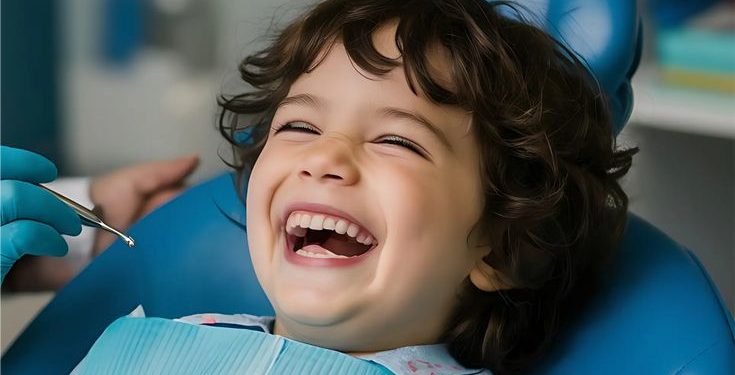Oral health is a vital part of overall well-being, and it begins earlier than many people realize. Pediatric dentistry, the specialized branch of dental care focused on infants, children, and adolescents, plays a crucial role in establishing a lifetime of healthy habits and confident smiles.
From the very first baby tooth to the teenage years, pediatric dentists are trained to meet the unique needs of growing patients—providing preventive care, education, and gentle treatments that set the foundation for lifelong oral health.
What Is Pediatric Dentistry?
Pediatric dentistry is a dental specialty dedicated to the oral health of children from infancy through adolescence. These dentists undergo additional training beyond dental school to better understand child development, behavior management, and the unique dental issues children may face.
They focus not only on treating existing dental problems but also on preventing future ones by teaching kids and parents the importance of proper oral hygiene and regular check-ups.
Why Pediatric Dentistry Matters
Early Prevention and Intervention
Dental problems can begin as soon as a child’s first teeth appear. Cavities, misaligned teeth, and gum issues are common in children, but with early intervention, these problems can often be prevented or minimized. Pediatric dentists emphasize prevention through routine cleanings, fluoride treatments, and sealants.
Child-Friendly Care
Children often feel anxious about dental visits. Pediatric dentists are skilled in creating welcoming, positive environments to reduce fear and build trust. Their gentle approach helps children feel more comfortable, turning dental care into a routine rather than a stressful experience.
Monitoring Growth and Development
As children grow, so do their jaws, teeth, and bite alignment. Pediatric dentists monitor these changes and can recommend timely interventions, such as orthodontic evaluations, to ensure healthy development.
Common Services in Pediatric Dentistry
- Routine Check-Ups & Cleanings – Keeping teeth free of plaque, tartar, and cavities.
- Fluoride Treatments – Strengthening enamel to prevent decay.
- Dental Sealants – Protective coatings applied to molars to reduce cavity risk.
- Cavity Fillings – Gentle, child-focused treatment for tooth decay.
- Early Orthodontic Assessments – Identifying misalignment or bite issues early.
- Emergency Care – Handling accidents like chipped, knocked-out, or injured teeth.
Teaching Good Oral Habits Early
Pediatric dentistry is about more than treatments—it’s about education. Dentists teach children how to brush and floss correctly, while also guiding parents on nutrition, thumb-sucking, and teething issues. By instilling good oral hygiene practices early, children are more likely to carry these habits into adulthood.
The Role of Parents in Pediatric Dental Care
Parents are partners in their child’s dental journey. Scheduling routine check-ups, supervising daily brushing, and encouraging healthy eating habits are all essential steps. Pediatric dentists often work closely with parents to answer questions, provide guidance, and build personalized care plans that fit each child’s needs.
Conclusion
Pediatric dentistry goes beyond treating children’s teeth—it’s about shaping positive dental experiences, encouraging lifelong oral hygiene, and protecting the healthy smiles of tomorrow. By starting dental care early and working with specialists who understand the unique needs of young patients, parents can ensure their children grow up with strong, confident, and healthy smiles.














